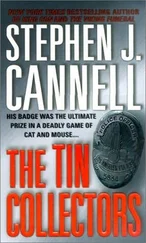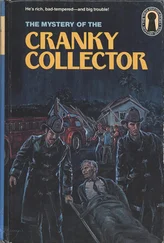“Drive carefully,” Orion said. “And take it easy out there.”
Molly’s cell phone was ringing. Her parents were waiting downstairs to take them to Henrietta’s Table.
“The ground’s uneven,” Orion reminded his father
“Old and infirm as I am,” Lou intoned, “it’s so crowded in the woods these days that if I fall, I’m sure somebody will find me.”
“Can we go?” Molly asked.
“I was just waiting for you,” Orion replied, and then into the telephone, “bye, Dad.”
“Farewell. And good-bye, Molly.”
Molly’s father was famous too, in an entirely different way. Carl Eisenstat was a physicist, and not the garden-variety kind. He had been in one of Orion’s college textbooks as the Eisenstat Principle of something or other. Matter? Motion? Orion could not remember, although it was assumed that he knew which. The Eisenstats assumed many things. The last time they’d come up from Princeton, Carl had announced, “I take it the two of you are planning to get married.” Orion had started back, offended that Carl would touch on a matter so private and confusing, but Molly’s father pressed on implacably: “And I make that assumption because you’ve been seeing each other for so long.”
Of course they had talked about getting engaged. Orion and Molly had lived together in their apartment off Putnam Avenue for three years. They had a routine; they had a life; they had a lot of stuff. Their third-floor warren opened onto a ramshackle but surprisingly large roof deck where they entertained. They kept a hibachi there, aluminum lawn chairs, and a camping table they had found on the street. On summer nights when friends came up for drinks, they passed around a pair of tweezers for the splinters that split off the sun-warped railings.
Molly’s plan had been to get married when Orion finished graduate school, and he had always liked this idea—keeping marriage at an indeterminate distance, along with his degree. At the time, Orion’s professional and financial prospects had been pleasantly vague. Now, however, they were unavoidably bright. Five months after Orion broke Lockbox, the system was up and running, or as Jonathan put it, “running better than ever,” and ChainLinx was huge. Projected earnings were shooting through the roof, and this was not lost on Molly’s father. Nothing was.
“You’ve been getting a lot of press,” lanky, white-haired Carl informed Orion in the buffet line at the restaurant, and Orion ducked his head, something between a nod and a shrug. Orion, Jonathan, Aldwin, and Jake had just appeared in Fortune magazine under the heading “Tycoons in Training.”
“I liked the photo. I recognized the steps of Building Thirteen.” Carl loaded his plate with lox and whitefish, eggs and sausages.
Orion watched Molly’s mother pause wistfully at the waffle station, and then settle on yogurt, fruit salad, and a bowl of Irish oatmeal. The resemblance between Deborah and Molly was striking: dark eyes, a heart-shaped face, lovely from the front, less so in profile. Molly had her mother’s slight bump in the nose and tiny chin. They were both petite, but Deborah was also zaftig, a short, wide gerontologist who wore tunic-length sweaters and long necklaces—silk cords hung with unusual pendants, a tiny woven bag or a many-hinged locket, a miniature kaleidoscope bouncing like a buoy on her vast bosom.
“Well, this is nice,” said Deborah when they reconvened at the table.
“Tell us about the IPO,” said Carl.
How different Molly’s father seemed from the man Orion had first met, almost eight years before. The Eisenstats had driven up to see their daughter, and she’d brought her new boyfriend to breakfast. On that occasion, he and Molly had shared one side of a booth like brother and sister facing their parents. Orion’s wet blond hair had fallen in his eyes, and Molly’s short curls had been damp. They’d looked a little too clean to be entirely innocent, having just come from Mather House, where they’d shared a shower, but they sat straight with the seam of the upholstered booth running up between them. Molly’s mother had tried to make conversation, but Professor Eisenstat kept his eyes on Orion, who had tried not to bolt his food or gulp his juice, or think about the night before, lest some memory of warmth and nakedness flash across his face.
Still, Carl had gazed at him with a grim, penetrating look. “I have a question for you.” Carl’s voice had been taut and slightly amused, as though he were sharpening cruel ironic skewers and looking forward to running Orion through. “How is it majoring in an auxiliary field?”
“Auxiliary? You mean computer science?” Orion had been so busy guarding against attacks on his character that at first he didn’t recognize Carl’s scientific gambit as such.
“Right. Auxiliary in that computer science is not a true science in itself, but a handmaid to math, physics, chemistry….”
“I like CS,” Orion said stoutly.
“But that’s my question,” Carl pressed. “What exactly do you like about it?”
Orion paused. “Programming.”
“Hmm.” Carl sipped his coffee.
Twenty years old, Orion had gazed across the table at Molly’s father with a mixture of resentment and misery. He was good at math, of course, but he excelled at building little computer systems piece by piece. Orion had always loved to tinker. He was a puzzle solver, no deep-thinking puzzle maker. He had done well in his CS courses: programming, distributed systems, hardware, algorithms, and graphics, for which he’d rendered a faceted crystal vase filled with water and a single red rose so that it cast an accurate shadow on a wood-grain tabletop. Were these exercises at all important? In Carl’s presence he’d felt acutely that computer science lacked a certain—he would never say the word aloud—but, yes, the field lacked a certain majesty.
Now, in the glass and farmhouse restaurant with its baskets and bouquets of chili peppers, Carl seemed thrilled with Orion’s programming habit. He actually whipped out that morning’s Boston Globe and read aloud. “Asked about his heroes, company cofounder Orion Steiner cites computer pioneer Donald Knuth, and maverick free-software activist Richard Stallman.”
What a strange effect money, or even the idea of money, had on people. Orion could not avoid wealth, or Carl either. How could he put off shopping for a ring? In six months, he could afford any ring or bracelet or necklace; he could afford anything. Orion looked at Carl’s smooth, close-shaven cheeks and his hawkish gray eyes and he saw what wealth would mean: not just traveling the world and buying toys, but paying huge complicated taxes and living in a house with Molly forever—not forever in the romantic sense—forever like her parents, with a loud dog and yellowing houseplants. Molly would gain a hundred pounds, and Orion would have to start collecting ugly paintings. They’d have a three-car garage and seven bathrooms, and they would sit around at night and debate whether it was better to time-share or buy planes.
“How many employees are you up to now?” Carl asked.
“I think we’re at …,” Orion hesitated, distracted by the cell phone in his pocket, buzzing against his leg. “Eighty-three?” he ventured, checking the caller ID. “Ninety-three?” It was Jonathan, but Orion ignored the call.
Deborah focused on Orion with a look of quiet pride. Carl leaned forward, keen and curious. Only their daughter paid no attention. Molly had closed her eyes and left him to entertain her parents’ expectations on his own. Exhausted, she was still sitting upright in her chair, but she had fallen fast asleep.
Carl and Deborah were driving home immediately to beat the traffic, and they dropped off Molly and Orion on the way. He helped her up the stairs, and she leaned against the wall as he unlocked the apartment. Then dropping her bag just inside the door, she bolted for the bedroom.
Читать дальше












